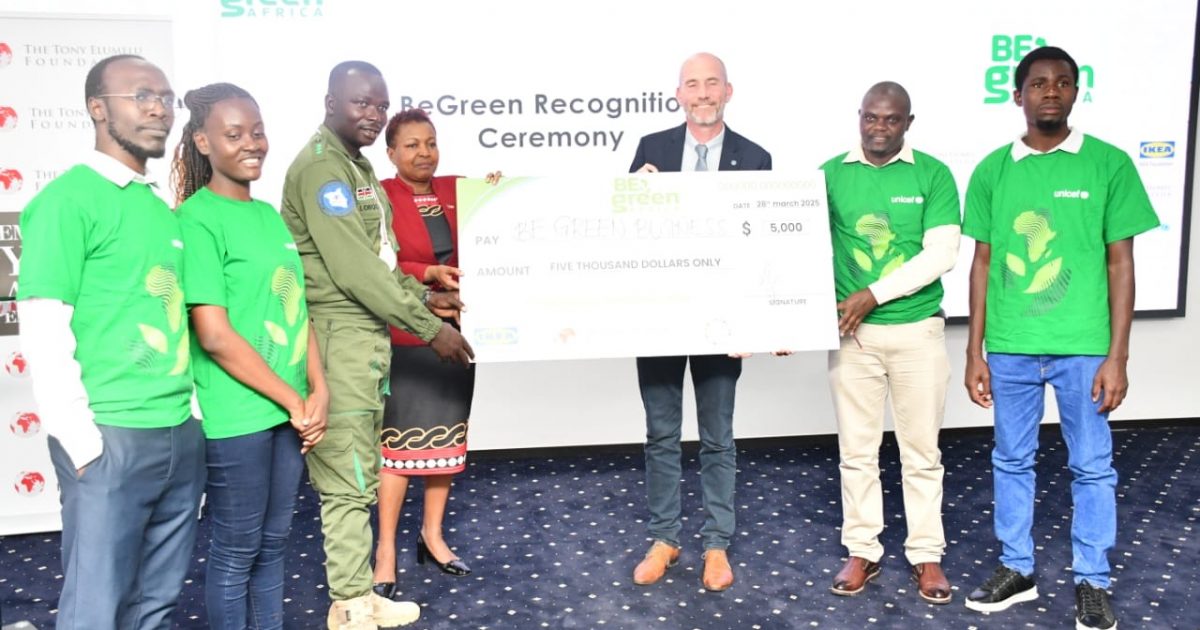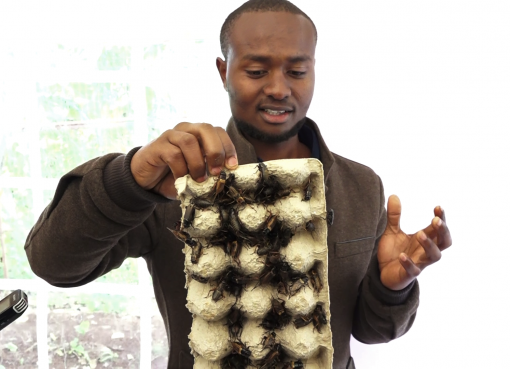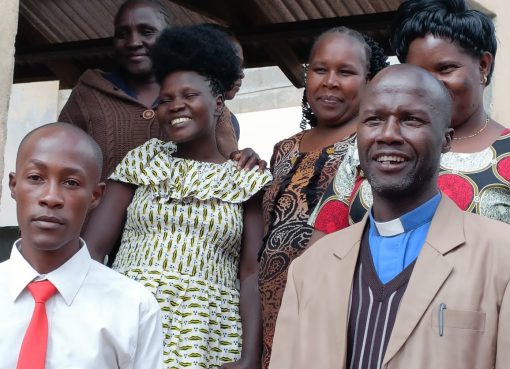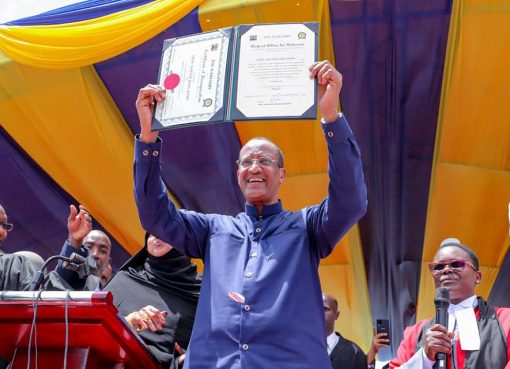Young entrepreneurs and innovators tackling waste management in Kenya have been celebrated today at the BeGreen Recognition Ceremony for their efforts in transforming waste into economic opportunities, underscoring the power of youth-led solutions in addressing climate change and unemployment.
The event showcased the achievements of youth-led businesses tackling waste management and advancing Kenya’s circular economy.
Principal Secretary (PS) State Department for Youth Affairs and Creative Economy, Ismael Madey, praised the resilience and ingenuity of young entrepreneurs in addressing climate change challenges.
In a speech read on his behalf by the Director Youth Social Development, Emily Maina, Madey encouraged the youths of the nation to remain steadfast in their vision since the journey of entrepreneurship is challenging, but added that their impact will resonate for generations.
The PS stated that today’s event marked the culmination of a journey, with top innovators receiving awards and seed funding to scale up their solutions.
“Kenya has made significant strides in environmental conservation, yet we still face challenges in waste management. Within these challenges lie immense opportunities especially for our youth to innovate and build a greener, cleaner Kenya,” he stated, adding that the BeGreen initiative has engaged over 2,000 young people, with participants undergoing intensive entrepreneurship and business development training.
Madey acknowledged key partners, including United Nations International Children Emergency Fund (UNICEF), the Tony Elumelu Foundation, United Bank of Africa (UBA) Kenya, Kenya Scouts Association, and Kenya Girl Guides Association, for their support in empowering youth underscoring UNICEF’s financial commitment, with USD 175,000 allocated for the 2024/2025 fiscal year and USD 275,000 for 2025/2026 to advance youth-led initiatives.
“Your projects have the potential not only to transform waste management in Kenya but to set an example for the entire continent,” he remarked.
The PS reaffirmed the government’s commitment to fostering a thriving green economy through policies, partnerships, and access to innovation hubs to ignite hope and opportunity for youth, impacting lives, transforming communities, and building a brighter future for the entire country.
At the same time, the Deputy Representative of UNICEF Kenya, Benjamin Meyer, echoed these sentiments by lauding the resilience and creativity of young entrepreneurs emphasizing that the role of public-private youth partnerships is key in driving change in the society.
“You are pioneers, whether you receive seed funding today or not, you have already demonstrated the leadership our future needs,” he assured.
Meyer reiterated that the BeGreen Entrepreneurship Programme has engaged nearly 2,000 young people, with 500 completing training and 120 receiving seed funding including Janet Dete, 24, from Mathare, who has recycled over 4,000 kg of braid waste, employing 17 part-time, and 27-year-old Mohammed from Mombasa who has processed over 12 tonnes of organic waste in six months.
Further, Meyer highlighted the urgency of youth engagement in waste management, noting that Kenya produces about 22,000 tonnes of waste daily, with up to 40 percent going uncollected.
“Investing in young people is not charity, it is the smartest investment for a sustainable, equitable, and prosperous future,” Meyer emphasized.
Meanwhile, UNICEF Innovation Manager, Charles Otieno, emphasized the urgency of addressing youth unemployment and climate challenges.
“If you find three young people, at least one is struggling or will struggle to get a job, then the skills many graduates have are not preparing them for work, this is why initiatives like BeGreen are critical,” implored Otieno.
He disclosed that the BeGreen initiative which was launched in 2023 through a public-private-youth partnership, has trained over 2,000 young people, developed 320 business plans, and awarded seed funding to more than 90 entrepreneurs, focusing on waste management, green innovation, and job creation.
Otieno commended key partners, including the Tony Elumelu Foundation, IKEA Foundation, and the Kenya Scouts and Girl Guides Associations, for their role in advancing youth entrepreneurship as he hinted on mentorship as the next phase.
“Behind every successful young entrepreneur is a mentor. We are pairing awardees with experts to help them navigate challenges and scale their businesses,” he added.
As BeGreen expands, Otieno reaffirmed UNICEF’s commitment to scaling the program with the Kenya National Bureau of Statistics (KNBS) to ensure long-term impact.
“This is just the beginning as we are unleashing a force for change to build Kenya’s green economy,” he stressed.
On the other hand, the Tony Elumelu Foundation (TEF) reasserted its commitment to empowering young African entrepreneurs at the event, emphasizing the role of green businesses in driving economic transformation.
Hakeem Onasanya, TEF’s Director of Operations, highlighted the foundation’s decade-long impact stressing that green entrepreneurship is not just the solution for today but the future of Africa.
“We have trained, mentored, and funded over 21,000 entrepreneurs across Africa, injecting over $100 million in seed funding and creating 1.5 million jobs,” he revealed.
Onasanya praised the resilience of young entrepreneurs, acknowledging the challenges they face assuring that with TEF, UNICEF, and partners like the IKEA Foundation and the Government of Kenya, BeGreen is scaling up support through mentorship, training, and funding.
“Entrepreneurship is hard. Green entrepreneurship is harder. But you’ve chosen to solve Africa’s problems, and in doing so, you are changing lives,” he encouraged.
The Kenya Scouts Association’s Chief Executive Officer (CEO), Moses Ndanda emphasized the evolving challenges facing young people and the need for a unified approach to youth empowerment.
Ndanda pointed out the disconnect between past expectations and present realities, stating, “What young people expected is not what they are seeing today. The landscape has changed, and we must adapt to meet their evolving needs.”
He underscored the importance of collaboration among organizations working in youth development, environmental sustainability, and digital innovation, calling for a more coordinated effort to maximize impact.
By Clinton Ng’iela





